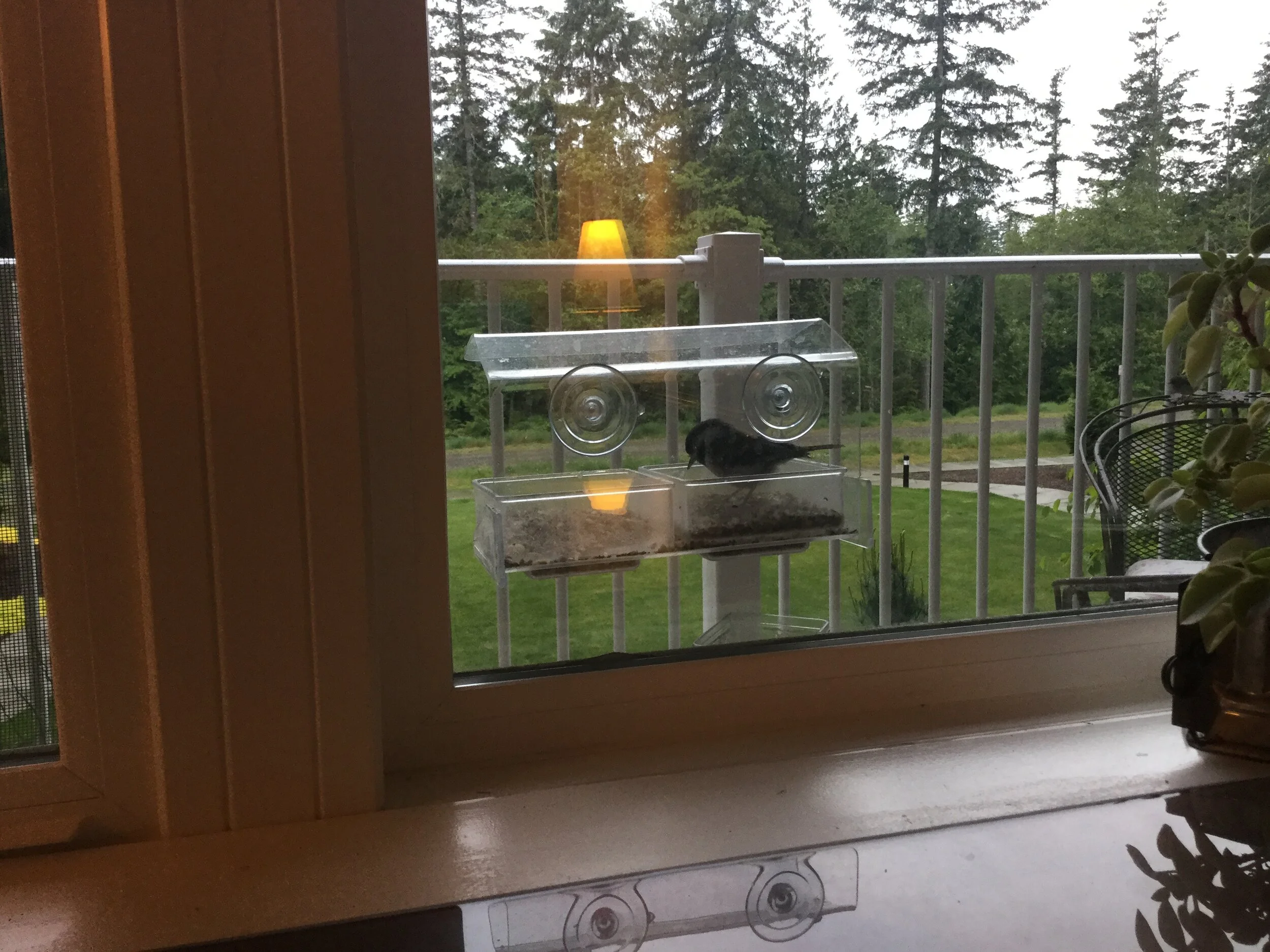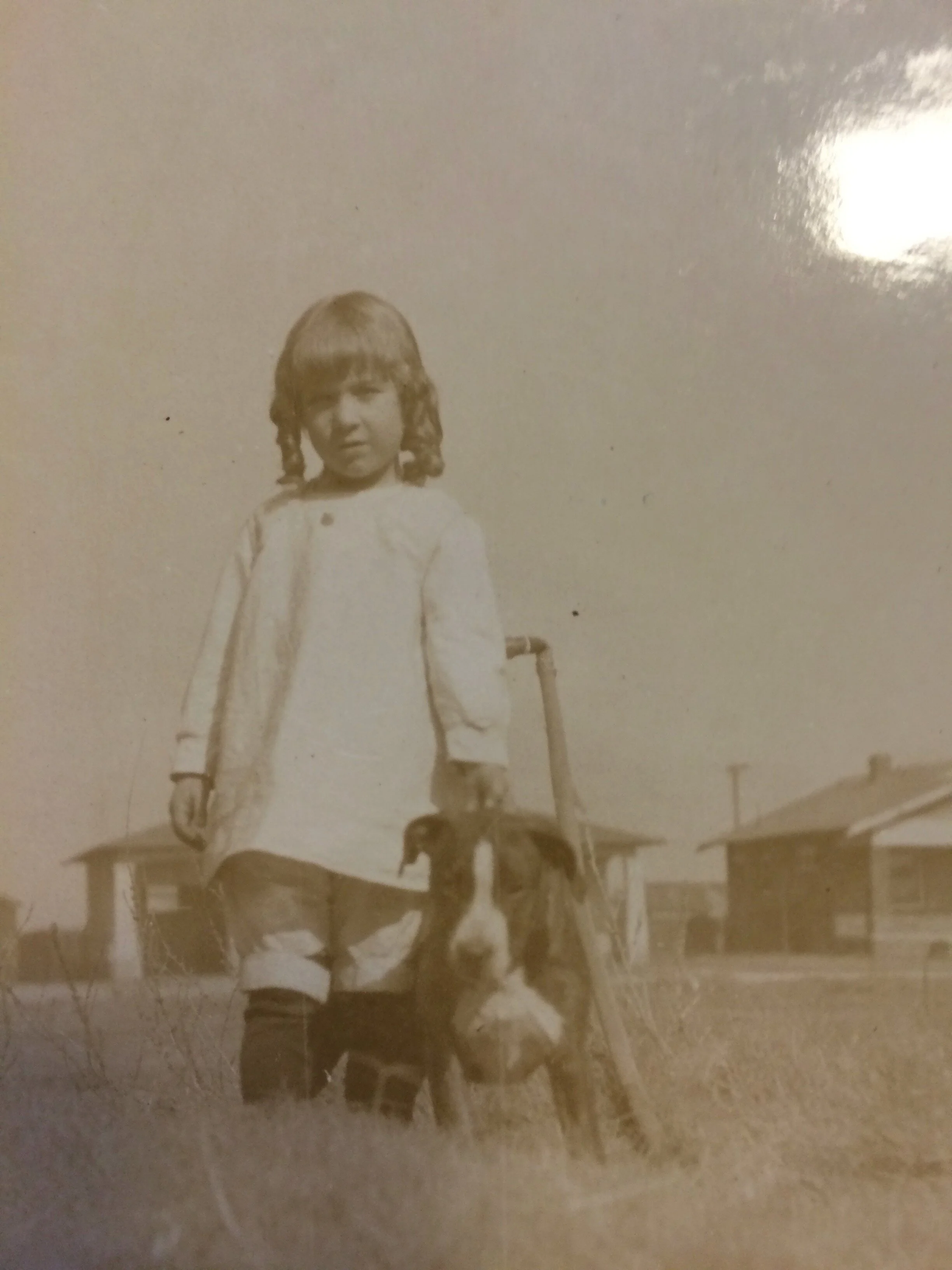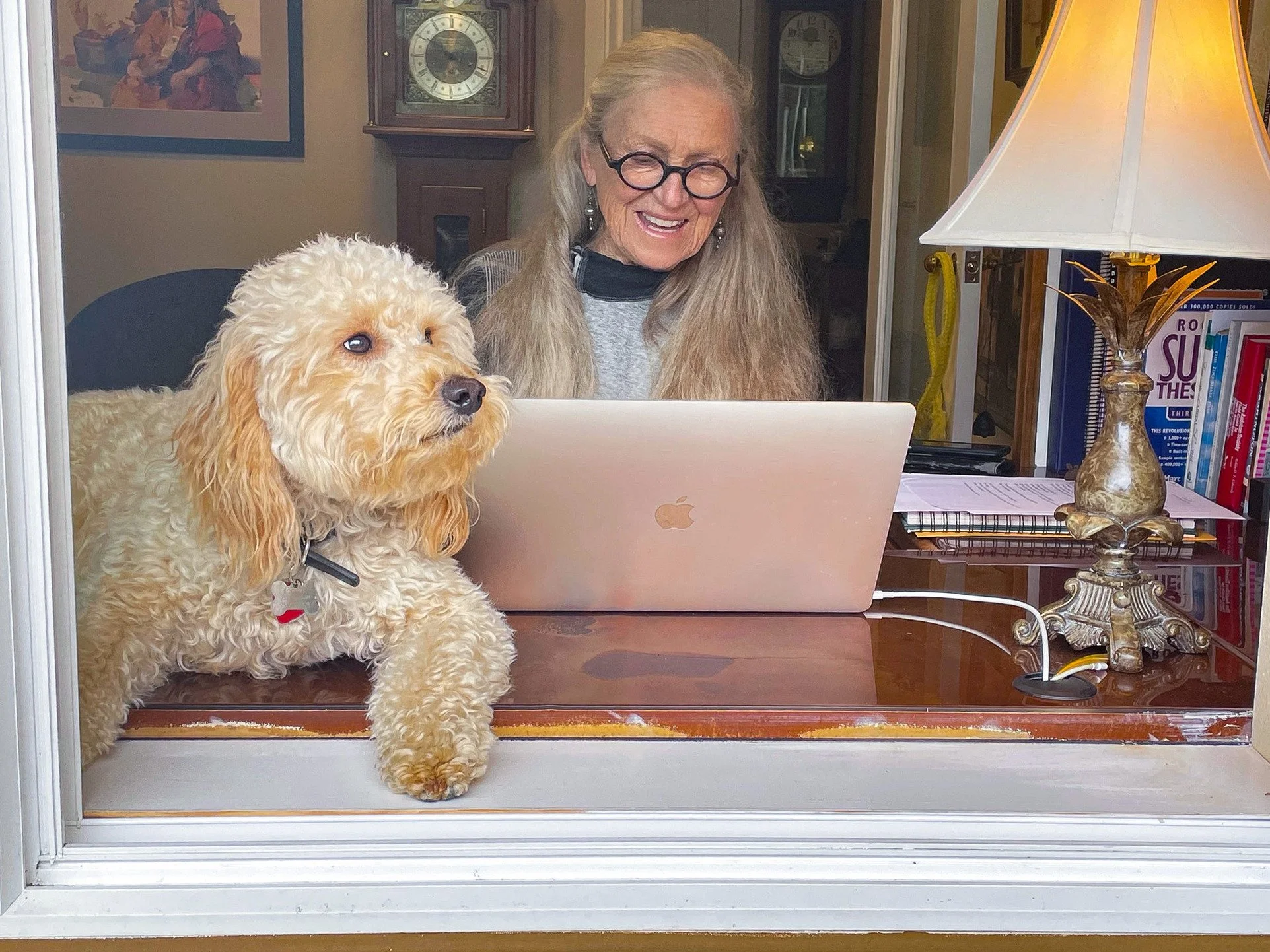#18 PUPPY - BUT ABOUT A BIRD
Monday, May 25, 2020
Memorial Day. Scooter’s 9th-Month Birthday
It happened something like this:
It was Memorial weekend Sunday afternoon. The sun was still fairly high in the west, and may even have exhibited a “sun ring,” a halo, but without proper eye protection, who’s to say? Our eldest son, that’s who. If that was the case, the cause being high, thin, icy clouds, then we may well expect today to see some precipitation. In fact, it is (as we called it in Arizona where I grew up) sprinkling now, as I write.
As I was saying—on Sunday, I was stretched out on the sofa, propped with pillows, reading, having just finished Ann Patchett’s amazingly good novel, “The Dutch House,” and having turned about three pages into Lynn Truss’s first tongue-somewhere-in-cheek mystery, “A Shot in the Dark,” when two things caught my attention: the book and my glasses were somewhere on my chest or on the floor, and my sleep was being disturbed by a noise. A familiar noise.
That darned Scooter, I thought.
Some months ago, Scooter discovered the spring-style door-stops screwed to skirting boards behind doors of our apartment where, without the stop, a door’s handle would wind up carving a hole in a wall. Scooter discovered the possibility of making a fabulous spronging sound by bending the spring with his muzzle or paw, freeing the spring, and watching the action of a spring, spronging. What could be more fun than this! he thought. The sound of his play resembles a woodpecker’s attack against a metal vent on the roof of things.
A rattle. A rapid rustling. A hailstorm. A repeated rhythm: a pull, a release, and a wonderful listening wait before replicating the exercise.
That darned Scooter, I thought, rising to consciousness. Only, upon opening my eyes, I saw Scooter stretched on the floor, sleeping. He was not pulling at a door-stop. But there, the sound came again. Behind me. At a window, from between wide blinds and a pane of glass. In a desperate attempt to free itself from so narrow a capture was a small bird, a finch, periodically, frantically, flapping its wings, trying to convince existence that what she could see could be hers, if glass would melt and free her to the familiar.
“Oh dear!” said I.
“Oh boy!” said Scooter, recognizing adventure and rising to it.
“No!” said I to pup, pushing him aside (repeatedly).
Look (as politicians frequently say). Fortunately, finally, it was “bird in hand,” dog at full speed bounce beside me, and freedom for the finch who promptly flew to the forest where I can only guess what its bird-brain was working to register.
Here’s my point. It is true that the human brain “fills in for us what we think we heard.” My neighbor’s doorbell only “dings.” It doesn’t “dong,” as it should, but when I ring it, I hear the whole, expected rhyme. I don’t actually hear the second sound but my brain tells me I do.
I heard the spronging of a springing door-stop in my light sleep. I didn’t actually hear that. I heard a bird trapped, frantically flapping wings reduced to capture by glass and shade, but the sound of a trapped bird didn’t have a finishing-up-for-you phrase in my brain. It took reality to convince me.
Here’s to reality—if we can wake to it, if we can see it, hear it, respond to its frantic attempts to be rescued.





